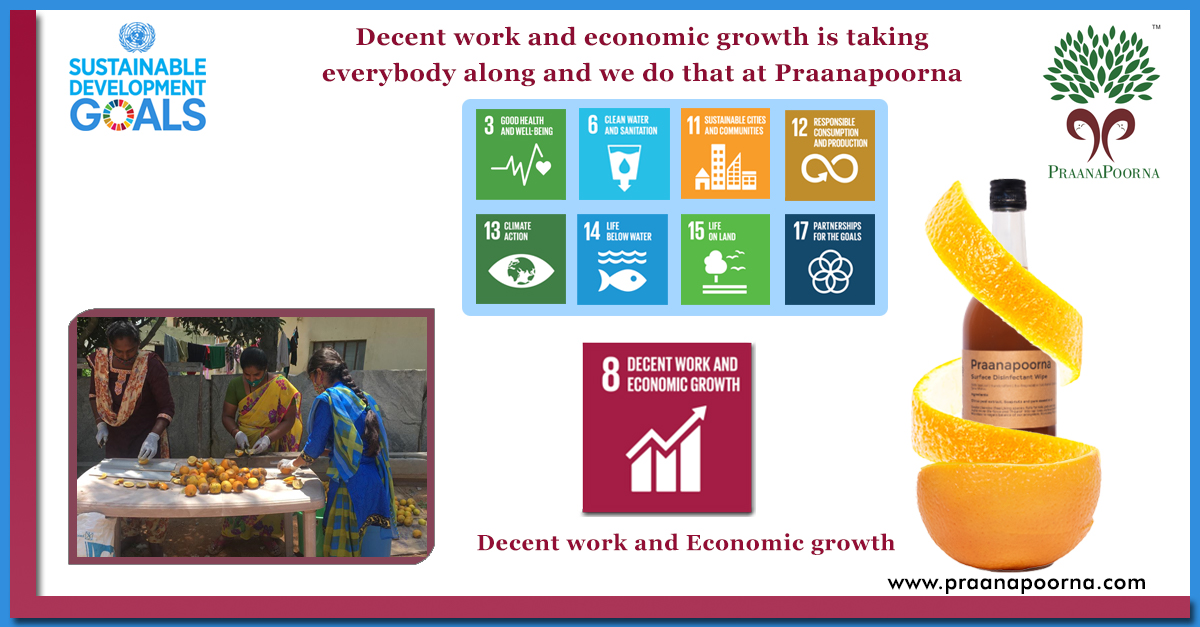No products added!
When Praanapoorna started its journey as a planet-friendly home and body care product company, the drive was to create an authentic natural product. At the same time, the team wanted to look beyond the organization’s four walls and invest in their local communities. What if the model creates opportunities for underprivileged or under-represented sections of society? Praanapoorna’s emphasis on the promotion of social inclusion aligns with the UN sustainable development Goal No. 8, which is decent work and economic growth that aims to achieve sustainable livelihoods, inclusiveness, sustainable economic growth, complete and productive employment, and decent work for everyone.
Praanapoorna’s commitment
Praanapoorna is a successful organization with a social and environmental objective, founded by Smitha Kamath, based out of Bengaluru. As a women-led organization, and as a ‘collective’ the emphasis on creating micro-entrepreneurs especially amongst women is core to the work of Pranapoorna.
How Praanapoorna engages women entrepreneurs:
The model is to train, create awareness, and help set up the micro-enterprise. While doing this there is support in creating a mindset of self-resilience. Each entity is working independently and they are linked for the tests and quality checks. This decentralized model slowly builds capacity for women to access financial services and understand the business, supply chain, etc.
What it brings to the community :
Besides the social benefits, these entrepreneurs are profitable and the contribution to UN SDG is immense while also safeguarding other goals such as life on land, life underwater, health and well-being, and also climate protection.
Many times environmentally and socially responsive products come at a premium that marginalized communities are unable to access. The natural advantage of this model to those who are able to access quality products otherwise are the producers themselves. As they can use the same products at home for their personal use, thus creating the twin benefits of awareness of health and well-being. This brings equity and perception of equity.
Why don’t many companies choose this model?
Wonder why this model of local production is not prevalent? Schumacher in his “Small is Beautiful” was asking these questions as to why we don’t share recipes across the globe, rather than supply a packet of biscuits from a centralized factory. That’s because the scale and profit association has skewed the markets big time. We need to think about a circular model that is ever sustaining.
We asked Ms. Smitha if there are any inherent issues in this model that she confronted. Smitha suggests that in fact, this model is a convenient model as scale-up happens at a pace and huge Capex can be avoided with staggered demand-based growth.
851

